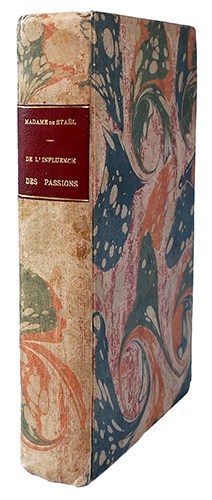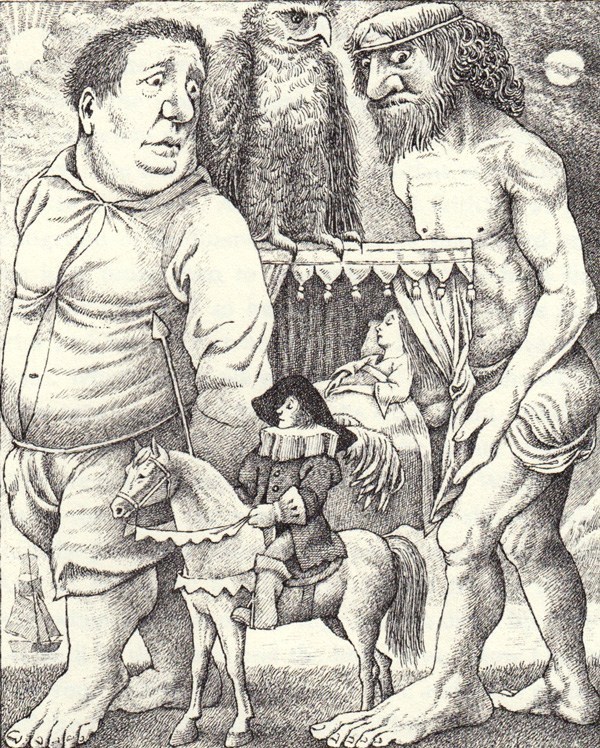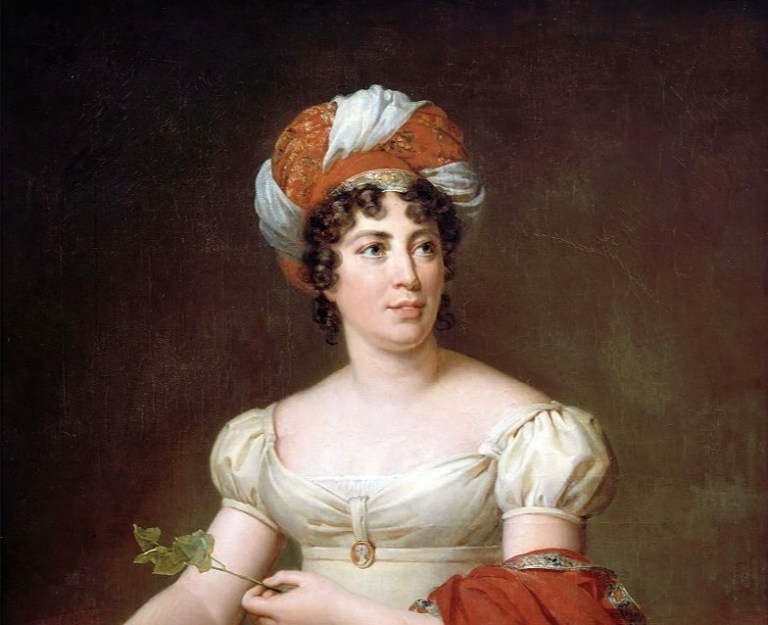Germaine de Staël’s Guide to Haters
INSPIRATIONAL, 27 May 2019
Maria Popova | Brain Pickings – TRANSCEND Media Service
The First Modern Woman on Meritocracy, the Psychology of Why the Masses Rejoice in Tearing Down Successful Individuals, and the Only True Measure of Genius
“The life of man, so short in itself, is still of longer duration than the judgment and the affections of his contemporaries.”
 Napoleon is said to have recognized only three powers in Europe: Britain, Russia, and Germaine de Staël (April 22, 1766–July 14, 1817) — the brilliant Swiss-French woman of letters, who rose against the odds of her time and culture to become Europe’s reigning intellectual queen and the most public critic of Napoleon’s dictatorial regime, for which he banished her from Paris for a decade and punished heavily those who visited her in exile.
Napoleon is said to have recognized only three powers in Europe: Britain, Russia, and Germaine de Staël (April 22, 1766–July 14, 1817) — the brilliant Swiss-French woman of letters, who rose against the odds of her time and culture to become Europe’s reigning intellectual queen and the most public critic of Napoleon’s dictatorial regime, for which he banished her from Paris for a decade and punished heavily those who visited her in exile.
In the epilogue to War and Peace, Tolstoy counted De Staël among the “influential forces” that have propelled humanity forward. Lord Byron considered her the greatest living writer. Stendhal used her name as the basis of his pseudonym. Emerson credited her with introducing him to German thought, which profoundly shaped his own influential philosophy. She was one of a handful of women, alongside Joan of Arc and Sappho, whom Auguste Comte included in his famous Calendar of Great Men — a compendium of 559 world-changing minds, spanning from Saint Augustine to Galileo to Zeno. (Lest we forget, for the vast majority of human history, brilliant women were “men.”)
A woman of unapologetic genius and self-possession, often celebrated as the first Modern Woman, De Staël was a published author before she was twenty and lived a life untrammeled by convention, alleviating her loveless convenience marriage to a vapid older politician by taking as lovers men and women she found intellectually riveting.
A decade before her semi-autobiographical 1807 feminist novel Corinne painted a trailblazing landscape of possibility for woman as an intellectual, artist, and sovereign citizen of humanity, De Staël published A Treatise on the Influence of the Passions Upon the Happiness of Individuals and of Nations (public library | PDF) — a masterwork of penetrating, timeless reflection “on the nature of individual and political felicity; on the road that leads to it; on the limits that confine it; on the rocks that rise between, and bar us from its enjoyment.”
Writing during the calamitous upheaval of the French Revolution — a time of widespread suffering “when either the hope or the want of happiness has prompted the human race to rise” — De Staël argues that every restriction imposed upon liberty “is always prescribed by the effervescence of some one of the human passions,” so that the attainment of freedom, both personal and political, is contingent upon promoting “the moral independence of man.” In her investigation of the psychological, sociological, and cultural forces driving our personal and collective flourishing or suffering, De Staël is governed by the conviction that “in all human sciences we begin with complex ideas, and only attain simple ideas as we advance in the progress to perfection.”
One of the most fascinating portions of her treatise, for it applies to nearly every aspect of life in every era at every level of society, deals with the complex ecosystem of talent, ambition, and success — what we do with our talent, what others make of our success, and how to cope with one of the ugliest impulses of the human heart: the small-spirited urge to tear down those who have risen to prominence by their own merit.
De Staël writes:
Of all the passions of which the human heart is susceptible, there is none which possesses so striking a character as the Love of Glory. The traces of its operations may be discovered in the primitive nature of man, but it is only in the midst of society that this sentiment acquires its true force.
Writing two centuries before the rise of celebrity culture as we know it, De Staël cautions that “true glory cannot be obtained by a relative celebrity.” Celebrity may be the product of ambition, which bears no correlation with talent, but not of genius — it is a species of “fleeting success which may imitate or resemble glory,” but is only relevant to its time, whereas glory is the product of genius that endures across the epochs. And yet those who dare to defy convention, transcend expectation, and distinguish themselves by the work of their talent invariably rile their contemporaries:
The efforts which are necessary to rise from an obscure situation, in order to perform a part which we have not been called upon to undertake, offend the majority of men.
Embedded in glory is thus the core paradox of meritocracy — when a person rises above the multitude by means of some singular talent, De Staël argues, jealous others invariably feel that the degree of the person’s talent eclipses their own and grow inflamed with the impulse to tear them down. The ferocity of the impulse is proportionate to the magnitude of the person’s success — we see it in the vicious attacks on Marie Curie, in the slap-down of E.E. Cummings’s creative courage, and perhaps most clearly in the endless campaign to poke holes in the image of the quintessential modern genius: Albert Einstein, a man of intellectual as well as moral genius, continually attacked by ill-informed cynics who readily judge — which is to say misjudge — his personal life.
A century and a half before Einstein himself lamented that the fate of people “the bored public has taken possession of” is to be “worshipped today, scorned or even crucified tomorrow,” De Staël limns the psychology of this small-spirited impulse for self-inflation by the demolition of genius:
He who distinguishes himself is at variance with the self-love of others: every step which raises him above the level kindles the wish to bring him down from his eminence. The mass of enlightened men assume a kind of active pride which destroys the success of individuals.
In some respects, De Staël notes, the animosity of talented peers can exceed that of the talentless masses:
Rivals among that limited number to which you belong, those who consider themselves in many respects your equals, press close, more close around you; and, should you be inclined to remove them to a distance, nothing is more difficult than to know to what degree we ought to cultivate the desire of popularity while we enjoy unpopular distinctions.
And yet, paradoxically, the measure of true genius is not in the admiration conferred upon the talented person in their lifetime but in their contribution to humanity’s collective growth and flourishing on far vaster scales of time and significance, effecting the dissolution of any personal ego. De Staël writes:
Every discovery which knowledge has produced, by enriching the mass, diminishes the empire of the individual. Human kind is the heir of genius, and the truly great men are those who have rendered such superior beings as themselves less necessary to future generations. The more the mind is allowed to expatiate in the future career of possible perfectibility, the more we see the advantages of understanding surpassed by positive knowledge, and the spring of virtue more powerful than the passion of glory.
In a sobering antidote to our narrow lens of consideration and its attendant blindness of short-termism, even more acute today than it was in De Staël’s day, she adds:
It will not, perhaps, yet be found that the present age affords the idea of such a progress; but we must see in the actual effect the future cause, in order to judge completely of an event. He who, in the mines where metals are concocted, sees only the devouring fire which seems to consume everything, is unacquainted with the course of nature; and cannot paint to his fancy the future but by multiplying the present.
De Staël considers how persons of genius polarize their contemporaries into ardent supporters and envious rivals, and how these roles interpolate as the object of their passions rises to and falls from favor:
Two parties immediately form, respecting the reputation of the individual concerned; not that there are different modes of judging of the same conduct, but because ambition connects itself with one side or the other. He who is inclined to become the adversary of great success, remains passive as long as its brilliancy remains undiminished. During the same period it is that friends are most indefatigable in favour of him who has gained distinction. They are fatigued with their previous exertions, when the moment of misfortune arrives… Enemies enter the lists with fresh arms, while friends have blunted theirs, by making a vain parade of them around the triumphal car.

“Ferdinand Faithful and Ferdinand Unfaithful” illustrated by Maurice Sendak for a special edition of the Brothers Grimm fairy tales.
Seventeen centuries after Seneca contemplated true and false friendship, De Staël probes:
It may be asked, why is friendship less persevering than animosity? The reason is, that the one may be abandoned in a great variety of modes; which in the other, success alone can remove the danger and the shame which would result from giving up the object. Friends can so easily attribute to the goodness of their own hearts the excess of their enthusiasm, and ascribe to the neglect of their advice the last misfortunes which their friend has sustained; there are so many ways in which a man can take credit for abandoning a friend, that the slightest difficulties are sufficient to determine a man to pursue that course. But hatred, on the other hand, from the first step which it takes, engaged without the possibility of retreat, is resolved to employ all the resources of desperate situations… because, then, even the coward sees no salvation but in the exercise of his courage.
Genius, De Staël argues, is only recognized not under the microscope of the myopic present but by taking the telescopic perspective which we so readily relinquish but which so steadily frames the largest truths:
The aggregate of observation which constitutes the code of experience proves that the life of man, so short in itself, is still of longer duration than the judgment and the affections of his contemporaries. The great man … must traverse many epochs of various or contradictory opinions. These oscillations cease with the passions by which they were produced. Still we live in the midst of them, and their concussion, which can have no influence on the judgment of posterity, destroys that present happiness which is immediately within our reach.
With an eye to the varied disconnects between inherent genius and its recognition by spectators, De Staël considers the crucial difference between glory, success, and admiration:
Success is the pageantry of genius… Glory is the joint production of the gifts of nature and of chance… He who is desirous of exciting [admiration] … must owe it to the effects which talents produce, much more than to their real value.
Admiration, she argues, is intolerant of “the defects which are often found combined with the most eminent qualities” — a combination that inheres in humanity’s greatest geniuses. This intolerance eventually ejects the person of genius from popular favor and pounces on them with a savage appetite for destruction of the admired image as they fall from grace. Centuries before social media became the supreme gladiatorial arena for this savagery, De Staël laments:
What a vast field for the prying curiosity of little minds! How they plume themselves upon having foreseen what yet they hardly comprehend!… What illumination they derive from the event! How many satisfactory recollections they enjoy in criticizing the conduct of another!
When, in the midst of such attacks, the person of genius pays no attention to this ferocious mob of nobodies, “they consider this silence proof of their superiority.” The persistent existence of these patterns, De Staël argues, is evidence that while glory may be thus dependent on its contemporaries, fickle as they are in their favor, genius transcends the turbulences of current opinion and passes into a wholly different realm of significance unmoored from the tyranny of the present moment:
Contemporary glory is submitted to [the public’s] decision, for it is characterised by the enthusiasm of the multitude. Real merit is independent of everything; but reputation acquired by that merit obtains the name of glory only by the noise of the acclamations of the multitude…. Whoever requires the suffrage of others, has at once placed his life in the power of calculation and of chance; to such a degree, that the labours of calculation cannot secure him from the accidents of chance, and the accidents of chance cannot exempt him from the pain of calculation.
Long before Emerson made his impassioned case for protecting individual integrity from the tyranny of the masses, De Staël considers how the massing of sentiment in popular opinion blunts the creative and reasoning faculties of the individual:
It is not the wisdom of any individual, but the general impulse of the whole, which leads to action, and this impulse is communicated by the most fanatical of the whole. One idea may be compounded of various reflections; a sentiment springs perfect and entire from the soul in which it is felt. The only opinion which the multitude by whom it is adopted displays, is the injustice of one man exercised by the audacity of all, that audacity which springs from the consciousness of strength, and the impossibility of being subjected to any kind of personal responsibility.
She examines the double-edged blade of admiration, which carves the image of the idealized public persona while wounding the living person with impossible expectations of superhuman perfection, unforgiving of the fallibilities and foibles that are the mark of being human:
The events of chance, those which none of the powers of thought can control, are, nevertheless, considered by public opinion as within the direction of genius. Admiration is a kind of fanaticism which expects miracles. It will not consent to allow the man, on whom it fixes, a place inferior to others, it will not renounce the exercise of its understanding, to believe and obey him, but, by ascribing to him something supernatural which cannot be compared to human faculties. In order to guard against such an error, it is necessary for us to be modest and just, to recongnise at once the limits of genius, and it superiority over ourselves.
In the remainder of her immensely insightful Treatise on the Influence of the Passions Upon the Happiness of Individuals and of Nations, De Staël goes on to explore the complexities of power (“Power is the most inauspicious of all the relations by which we can be connected with a great number of men.”), love (“Of all the chapters in this work, there is none upon which I expect so much criticism as on [this one].”), and various other facets of human nature integral to the attainment of the constellation of satisfactions we call “happiness.” Complement this particular portion with Dostoyevsky on ambition and success, Anna Deavere Smith on the discipline of not letting others define you, Van Gogh on the human pursuit of greatness, and Schopenhauer’s sublime distinction between talent and genius, then revisit Kierkegaard’s abiding insight into why haters hate.
_______________________________________
 Brain Pickings is the brain child of Maria Popova, an interestingness hunter-gatherer and curious mind at large obsessed with combinatorial creativity who also writes for Wired UK and The Atlantic, among others, and is an MIT Futures of Entertainment Fellow. She has gotten occasional help from a handful of guest contributors. Email: brainpicker@brainpickings.org
Brain Pickings is the brain child of Maria Popova, an interestingness hunter-gatherer and curious mind at large obsessed with combinatorial creativity who also writes for Wired UK and The Atlantic, among others, and is an MIT Futures of Entertainment Fellow. She has gotten occasional help from a handful of guest contributors. Email: brainpicker@brainpickings.org
Go to Original – brainpickings.org
Tags: Literature, Maria Popova
DISCLAIMER: The statements, views and opinions expressed in pieces republished here are solely those of the authors and do not necessarily represent those of TMS. In accordance with title 17 U.S.C. section 107, this material is distributed without profit to those who have expressed a prior interest in receiving the included information for research and educational purposes. TMS has no affiliation whatsoever with the originator of this article nor is TMS endorsed or sponsored by the originator. “GO TO ORIGINAL” links are provided as a convenience to our readers and allow for verification of authenticity. However, as originating pages are often updated by their originating host sites, the versions posted may not match the versions our readers view when clicking the “GO TO ORIGINAL” links. This site contains copyrighted material the use of which has not always been specifically authorized by the copyright owner. We are making such material available in our efforts to advance understanding of environmental, political, human rights, economic, democracy, scientific, and social justice issues, etc. We believe this constitutes a ‘fair use’ of any such copyrighted material as provided for in section 107 of the US Copyright Law. In accordance with Title 17 U.S.C. Section 107, the material on this site is distributed without profit to those who have expressed a prior interest in receiving the included information for research and educational purposes. For more information go to: http://www.law.cornell.edu/uscode/17/107.shtml. If you wish to use copyrighted material from this site for purposes of your own that go beyond ‘fair use’, you must obtain permission from the copyright owner.


